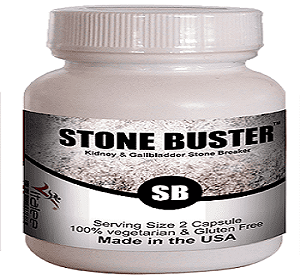How to Prevent Kidney Stones – A Comprehensive Guide
Kidney stones are small, hard deposits that form in the kidneys, causing significant pain and discomfort when they pass through the urinary tract. Preventing kidney stones is crucial for maintaining overall health and avoiding the intense pain associated with them. This guide covers various strategies and lifestyle changes to help prevent kidney stones.
Understanding Kidney Stones
Kidney stones form when minerals and salts in the urine crystallize and clump together. They can vary in size and shape, ranging from tiny grains to large stones that can block the urinary tract. There are several types of kidney stones, including calcium oxalate, calcium phosphate, uric acid, and struvite stones, each with its specific causes and preventive measures.
Stay Hydrated
Adequate hydration is one of the best strategies to avoid kidney stones. Water is the most important fluid to drink as it helps dilute the chemicals in urine that cause stones. Try to drink eight to ten glasses of water a day, or more if you exercise vigorously or live in a hot environment.
Dietary Changes
- Limit Oxalate-Rich Foods: Foods high in oxalates can contribute to the formation of calcium oxalate stones. Limit intake of spinach, rhubarb, beet greens, nuts, and chocolate.
- Reduce Sodium Intake: High sodium levels in the diet can increase the amount of calcium in the urine, leading to stone formation. Avoid processed foods, canned soups, and salty snacks. Opt for fresh, whole foods and use herbs and spices to flavor your meals instead of salt.
- Eat Calcium-Rich Foods: Contrary to what one might think, consuming adequate amounts of dietary calcium can help prevent stones. Calcium binds to oxalate in the intestines, preventing it from being absorbed into the bloodstream and reaching the kidneys. Include dairy products, fortified plant-based milks, and leafy greens in your diet.
- Limit Animal Protein: Diets high in animal protein can increase the risk of kidney stones. Reduce the intake of red meat, poultry, eggs, and seafood. Opt for plant-based protein sources like beans, lentils, and tofu.
- Avoid High-Sugar Foods and Drinks: High sugar intake, especially fructose, can increase the risk of kidney stones. Limit consumption of sugary beverages, sweets, and processed foods containing high fructose corn syrup.
Maintain a Healthy Weight
Kidney stones are a risk factor for obesity. The risk can be decreased by eating a balanced diet and getting regular exercise to maintain a healthy weight. On most days of the week, try to engage in moderate physical activity for at least 30 minutes. Walking, cycling, and swimming are good options for physical activity.
Specific Nutritional Supplements
- Citrate Supplements: Citrate can help prevent kidney stones by binding with calcium and preventing stone formation. If your urine is low in citrate, your doctor might recommend citrate supplements or medications.
- Vitamin D and Calcium: If you are at risk for stones and need calcium or vitamin D supplements, it is essential to take them with meals and under medical supervision to avoid increasing the risk of stones.
- Avoid Excessive Vitamin C Supplements: High doses of vitamin C can increase the amount of oxalate in your urine, raising the risk of stones. Stick to the recommended daily allowance for vitamin C unless advised otherwise by a healthcare provider.
Regular Monitoring and Medical Advice
If you have a history of kidney stones, regular check-ups with your healthcare provider are essential. They can monitor your condition and recommend specific preventive measures based on your risk factors. In some cases, medication might be necessary to prevent stone formation.
- Medications: Depending on the type of stones you are prone to, your doctor might prescribe medications to control the levels of certain substances in your urine. For example, thiazide diuretics can reduce calcium levels, while allopurinol can lower uric acid levels.
- Urine Tests: Regular urine tests can help identify the risk of stone formation by measuring levels of calcium, oxalate, uric acid, and other substances.
- Blood Tests: Blood tests can also provide valuable information about your risk for kidney stones by measuring your levels of calcium, phosphorus, and uric acid.
Natural Remedies and Home Practices
- Lemon Juice: Lemon juice is high in citrate, which can help prevent kidney stones. Adding lemon juice to your water or incorporating it into your diet can be beneficial.
- Herbal Remedies: Certain herbs like dandelion root, nettle leaf, and horsetail may support kidney health and help prevent stones. Always consult with a healthcare provider before starting any herbal remedies.
- Hydration with Herbal Teas: Drinking herbal teas such as nettle tea or dandelion tea can help maintain hydration and support kidney health.
Conclusion
Preventing kidney stones involves a combination of dietary changes, maintaining a healthy lifestyle, staying hydrated, and regular medical monitoring. By making these changes, you can significantly reduce your risk of developing kidney stones and ensure better overall kidney health. Always consult with a healthcare provider before making any significant changes to your diet or starting new supplements, especially if you have a history of kidney stones or other health conditions.
